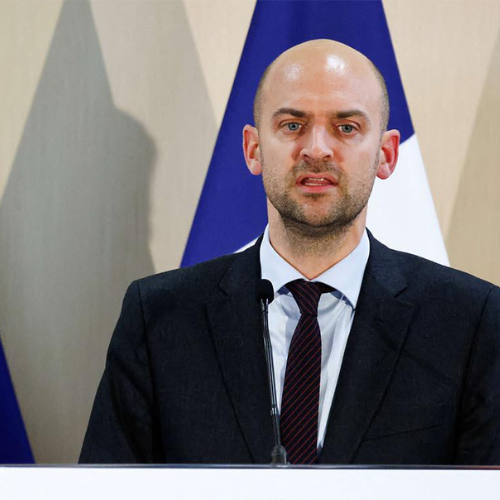The European Union (EU) announced on Monday that it will ease certain sanctions on Syria, marking a significant shift in its policy toward the war-torn country. This decision was revealed during a meeting of top EU diplomats in Brussels. France’s Foreign Minister confirmed the development, explaining that the move is aimed at encouraging Syria’s new leadership to fulfill commitments for a peaceful and inclusive transition.
The EU had originally imposed tough sanctions on Syria during its brutal civil war, which lasted over a decade. These measures targeted the Syrian economy, the government under President Bashar al-Assad, and key sectors like banking, transport, and energy. For years, these sanctions were part of the EU’s strategy to pressure the Assad regime to step down.
Now, with the Assad family no longer in power and new leadership in place, the EU hopes to support Syria’s recovery while ensuring the new rulers keep their promises to build an inclusive government.
A Cautious Step-By-Step Approach
The EU’s foreign policy chief emphasized that this shift will follow a “step-for-step” strategy. This means the EU will only suspend certain sanctions temporarily, rather than removing them entirely. The goal is to maintain leverage over the new leadership and encourage continued progress toward stability and inclusion in Syria.
EU Rejects Belarus Election as a ‘Sham’ and Considers New Sanctions
One of the main areas under discussion is the suspension of sanctions targeting the energy, transport, and banking sectors. These sanctions have severely restricted Syria’s ability to rebuild after years of conflict. However, EU officials clarified that these measures would only be suspended if Syria’s new leadership demonstrates positive steps toward fulfilling their commitments.
While this decision reflects the EU’s willingness to engage with Syria’s new rulers, it also reveals the bloc’s cautious approach. Many EU countries remain concerned about moving too quickly to embrace the new Islamist-led government in Damascus.
Who Remains Under Sanctions?
Despite the EU’s willingness to ease some restrictions, certain individuals and groups will remain under sanctions. For example, Syria’s new de facto leader and the Islamist group he leads are still subject to the EU’s restrictive measures. The EU has made it clear that lifting these designations is not currently up for discussion.
Additionally, the EU will not completely eliminate sanctions on Syria’s economy. Diplomats insist that only a suspension, rather than a full removal, is on the table for now. This is intended to keep pressure on the leadership and ensure they follow through on promises of reform.
Germany Leads EU Discussions on Easing Sanctions on Syria Amid Crisis
At the same time, France announced its plans to propose new sanctions against Iranian officials. These sanctions would target those responsible for detaining French citizens in Iran, signaling France’s determination to address issues beyond Syria.
Balancing Reconstruction and Caution
The EU’s decision comes at a time when Europe is eager to support Syria’s reconstruction and establish better ties with its new leadership. The Assad regime’s departure marked the end of over 50 years of rule by the same family, and many in the EU see this as a chance to help rebuild the country.
However, not all EU nations are entirely comfortable with this shift. Some worry about the risks of engaging too closely with Syria’s new rulers, who are led by an Islamist group. These concerns have led to a careful and measured approach, with the EU balancing hopes for progress with the need for caution.
For now, the EU’s decision to ease sanctions represents a tentative step toward engagement with Syria’s new leadership. By suspending certain restrictions, Europe hopes to support the country’s recovery while ensuring its new rulers stick to their promises of reform. At the same time, the decision underscores the EU’s determination to maintain leverage and proceed carefully in rebuilding its relationship with Syria.


